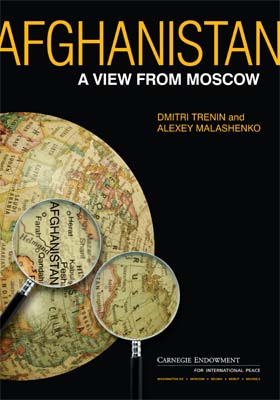Despite its importance, Russia’s perspective has been missing from many previous analyses of coalition policy in Afghanistan. Dmitri Trenin and Alexey Malashenko fill that gap with a report that takes a fresh look at the coalition’s involvement in Afghanistan. They conclude that Moscow is an essential part of the Afghan equation that is often overlooked.
Russia remains cautious about becoming too involved in the conflict, but Moscow fears the prospect of instability in Central Asia and drug trafficking from Afghanistan. Russia wants to:
- Prevent an outright Taliban victory fearing that if the Taliban regain control they could export radicalism and support rebel activity in Russia’s near abroad. Even though there is a rivalry with the United States for influence in Central Asia, Russia essentially supports the U.S.–led coalition.
- Stem the flow of drugs out of Afghanistan to Russia’s consumers. Its leaders worry about the exponential growth in narcotics production of narcotics in Afghanistan since the fall of the Taliban.
- Restore a neutral, pacified Afghanistan to serve as a buffer state between Central Asia and the Greater Middle East.
“Russia views Afghanistan today largely through the prism of security threats to itself and its Central Asian neighborhood, where Moscow aspires to soft dominance,” write Trenin and Malashenko.





